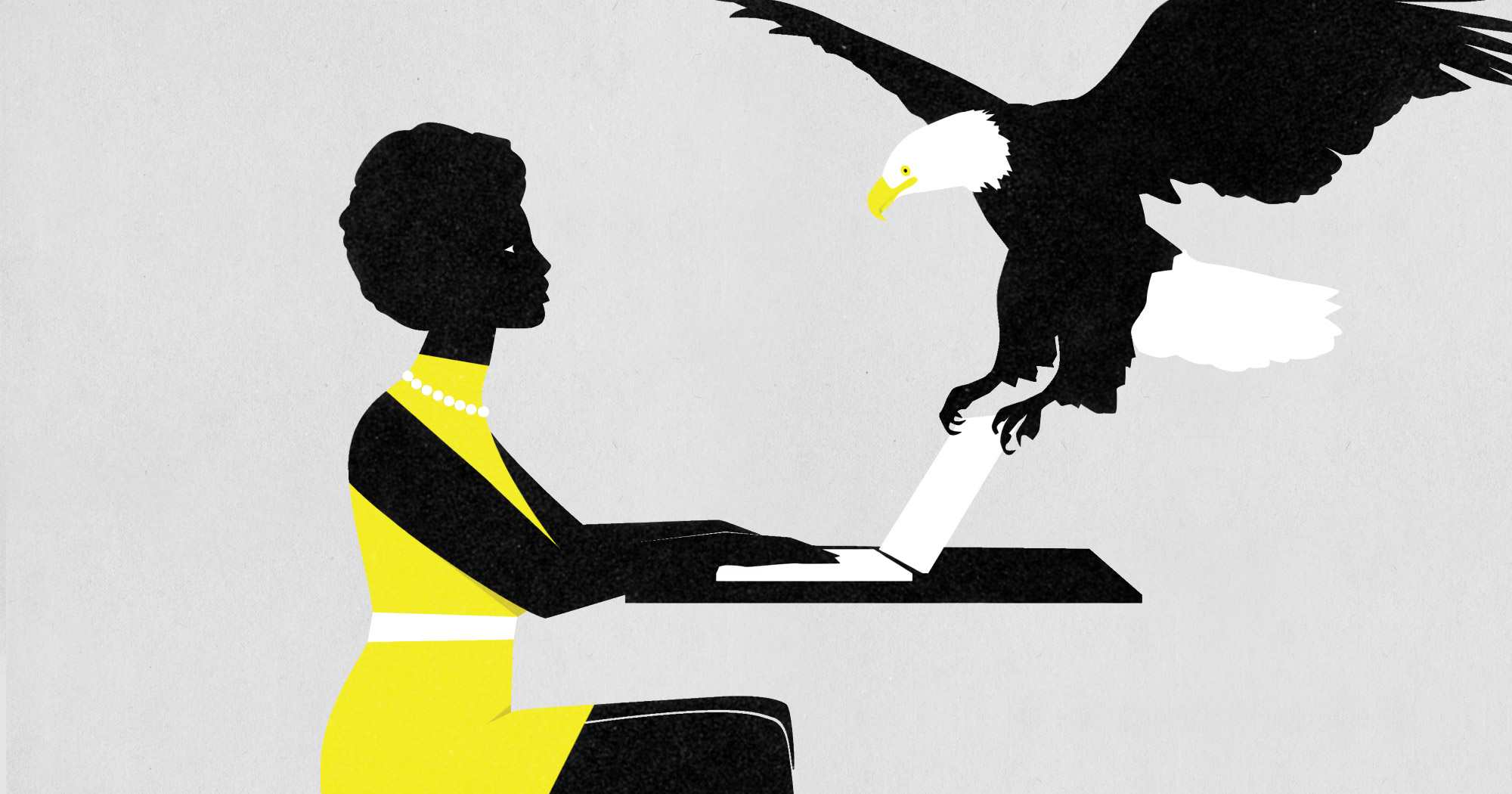Librarians Watch Government Watching You; Publishers and Authors Should, Too

Late last September, without a ton of fanfare or to-do, Congress passed H.R. 5325, a continuing appropriations bill for Fiscal Year 2017. It included some Zika funding, some verbage covering veterans, and nothing at all about National Security Letters, the FBI’s written secret requests for information, created by the PATRIOT Act, which require almost no official oversight.
Did I say “National Security Letters?” That’s funny, because it so happens that a brave group of public librarians and the American Association of Law Libraries lobbied specifically to keep National Security Letters out of that bill. Libraries do not want NSLs to be any more powerful, or numerous, than they are now.
From 2003 to 2005, the FBI issued about 200,000 NSLs. (That’s about 180 per day!) One of those, issued in 2005, went to a library system in Connecticut called the Library Connection. The FBI wanted to know who was on the libraries’ computers between 4 p.m. and 4:45 p.m. the day after Valentine’s day. They wanted to know where those users went online and what they did.
It’s not a far jump between watching patrons’ online activity and watching their borrowing habits. Who’s reading the Quran? Malcolm X? Anarchist literature? Who knows what the FBI would find interesting? It might depend on the political climate, state of war, or who happens to be sitting in the Oval Office at the moment.
Under those circumstances, why would a library even buy potentially questionable stuff? It’s possible to argue that stocking a book whose use could incriminate a patron—such as a guide for building rockets that literally describes itself as being intended for an evil genius—is entrapment. Or conspiracy to aid a criminal, depending on your point of view. So maybe libraries stop buying content that they think the FBI might associate with undesirable activity. Since librarians can’t read every book that comes in, maybe they start buying only from “safe” publishers, “safe” authors. Maybe they buy less. Maybe they all buy from the same, “safe” list. Maybe they even run that list past the chief of police to make absolutely sure that nobody gets in trouble on the library’s watch.
See how far we could roll over?
That’s why librarians from that Connecticut library system stood the hell up and refused to be silent when they received that NSL demanding their patrons’ information. That’s why the American Library Association brought out the big guns when it looked like NSLs were going to get stronger in September.
Lack of privacy leads to fear. Fear leads to self-censorship. Self-censorship—any censorship—leads to the death of the open culture that makes America great. If people worry about offending obscure FBI sensibilities, then they’ll avoid talking about the exact things that need to be talked about … and publishing the exact things that need to be published.
Public libraries are about free, open information dispersal. I think it bears mentioning again that the entire concept is American to the bone, generated to provide the public with a means of educating themselves to foster an enlightened democracy. If privacy dies, then so does that enlightenment. And so does that democracy.
But, you know, Twitter gets NSLs too. So does Google and Yahoo and who knows who else. People use those services in the the library all the time, which makes fighting NSLs frustrating for libraries. There’s no way to know if user data is already being tapped, and anyway, if the public is willing to give Facebook all of its information anyway, then what’s the point? Yahoo may be willing to push back, but that’s no guarantee that AOL will.
That’s why libraries can’t do this alone. Yes, we have idealistic reasons for standing up to irresponsible surveillance. But eventually, one of these zerg-rush attempts to expand the power of NSLs will make it through. And then, someday, another. The slope may be shallow, but it is there. Publishers and authors are in a position to understand why NSLs are problematic. They have lobbying power and a vested interest in slowing the tumble toward oblivion of American privacy. Unlike big tech companies, they don’t experience a conflict of interest where information-gathering strategies are concerned. They understand why anonymity may be good for society.
So, publishers. So, authors. Librarians are committed to rolling this rock back up the hill. Join us, won’t you? In the end, we all stand to gain.

Anna Call is a reference librarian at the Nevins Memorial Library in Methuen, Massachusetts. Follow her on Twitter @evil_librarian.
Anna Call
